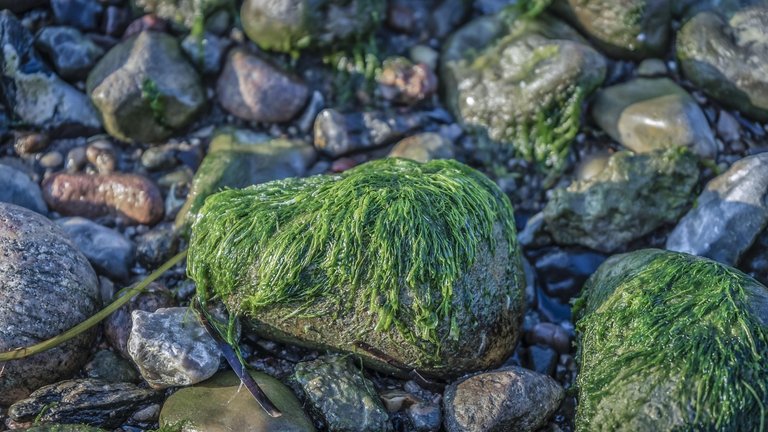CULTURE METHODS OF ROTIFERS
ROTIFER CULTURE METHODS
Rotifers can be cultured using three main systems:
A. Batch Culture
- Organic manure is used to promote algal (phytoplankton) growth, which serves as food for rotifers.
2.Inoculate the tank with 10-20 rotifers/algae that are in the exponential growth phase.
- Culture runs for 1 to 15 weeks. After the algae are consumed, all rotifers are harvested as fish larvae feed.
4.A small number of rotifers are saved to start a new culture.
B. Semi-continuous culture:
It is a method of rotifer production where the culture is maintained over a period of time by partially harvesting the population and replenishing the system with fresh water and nutrients.
Instead of harvesting the entire culture at once (as in batch culture), only a portion of the rotifers and culture medium is removed at intervals.
3.The removed volumes are then replaced with fresh water and sometimes with phytoplankton or nutrients to support continued growth.
Important Considerations:
It avoids total depletion of food or oxygen, which can happen in batch cultures. Important Considerations: The amount harvested should match the growth rate of the rotifers.
Benefits:
Provides a more stable and continuous yield of rotifers. Less labor-intensive than setting up new batch cultures frequently. Reduces waste and the risk of culture crashes from overpopulation or poor water quality.
C. Continuous Culture:
- Conducted infarge, controlled containers
- Requires constant monitoring of temperature, pH, oxygen, and nutrient levels.
Harvesting:
1.Fertilize algal tanks when bloom declines.
2.Harvest or transfer rotifers every 14 days to prevent crash.
- Harvesting Use a 50 µm mesh net to collect rotifers.
4.For large-scale, tow nets across ponds and filter through a 70 µm mesh bag.
5.Harvest 20-50% of the population, then allow recovery before next harvest.
That's all for today. It's a great pleasure for me to share some interesting information about Culture of Rotifers
Thanks for reading.
Have a great beautiful day ahead.
Translation to Portuguese
MÉTODOS DE CULTIVO DE ROTÍFEROS
Os rotíferos podem ser cultivados usando três sistemas principais:
A. Cultura em Batelada
Esterco orgânico é usado para promover o crescimento de algas (fitoplâncton), que servem de alimento para rotíferos.
Inocular o tanque com 10-20 rotíferos/algas que estejam na fase de crescimento exponencial.
A cultura dura de 1 a 15 semanas. Após o consumo das algas, todos os rotíferos são colhidos para servirem de alimento para as larvas de peixe.
Um pequeno número de rotíferos é guardado para iniciar uma nova cultura.
B. Cultura semicontínua:
É um método de produção de rotíferos no qual a cultura é mantida por um período de tempo através da colheita parcial da população e do reabastecimento do sistema com água fresca e nutrientes.
Em vez de colher toda a cultura de uma só vez (como na cultura em batelada), apenas uma parte dos rotíferos e do meio de cultura é removida em intervalos regulares.
Os volumes removidos são então substituídos por água doce e, por vezes, por fitoplâncton ou nutrientes para promover o crescimento contínuo.
Considerações Importantes:
Isso evita o esgotamento total de alimento ou oxigênio, o que pode acontecer em culturas em batelada. Considerações Importantes: A quantidade colhida deve corresponder à taxa de crescimento dos rotíferos.
Benefícios:
Proporciona um rendimento mais estável e contínuo de rotíferos. Menos trabalhoso do que configurar novas culturas em batelada com frequência. Reduz o desperdício e o risco de colapso da cultura devido à superpopulação ou à má qualidade da água.
C. Cultura Contínua:
- Realizados em grandes recipientes controlados
- Requer monitoramento constante da temperatura, do pH, do oxigênio e dos níveis de nutrientes.
Colheita:
Adubar os tanques de algas quando a floração diminuir.
Colha ou transfira os rotíferos a cada 14 dias para evitar o colapso da população.
Colheita Utilize uma rede de malha de 50 µm para coletar rotíferos. 4. Para grandes volumes, utilize redes de arrasto em tanques e filtre através de um saco de malha de 70 µm.
4.. Colha 20-50% da população e, em seguida, permita a recuperação antes da próxima colheita.
Isso é tudo por hoje. É um grande prazer para mim compartilhar algumas informações interessantes sobre a cultura de rotíferos.
Obrigado por ler.
Tenha um ótimo e lindo dia pela frente.


Hello.
It appears that significant parts of this writing are machine-generated.
We would appreciate it if you could avoid publishing AI-generated content (full or partial texts, art, etc.).
Thank you.
Guide: AI-Generated Content = Not Original Content
Hive Guide: Hive 101
If you believe this comment is in error, please contact us in #appeals in Discord
This is not ai generated post . I work hard on my own study to write this article. Please forgive me this time.
Its really unfortunate that such thing happened under my nose.
Thank you, HW.
Thanks.
There has been a group of connected accounts doing that.
copycreator69
itz-kira
itznur2
itztaba99
onlygods55
View more
This is very nice and is my first time of hearing about rotifer
Hello.
Welcome to Hive.
To confirm your authorship of the content, could you please add the link to your Hive blog to a profile on a well-established social media account like Facebook, Instagram, or Twitter (which has not been recently created)?
After you add the link, please respond to this comment with the URL link to that website.
You can remove this mention once we confirm the authorship.
Thank you.
More Info: Introducing Identity/Content Verification Reporting & Lookup
Sorry. I did not use any social media.
Hi. Everyone has a social media account in 2025.
Here is my introduction post:
https://ecency.com/hive-109667/@itz-kira/introducing-myself-to-hive-journey?referral=itz-kira